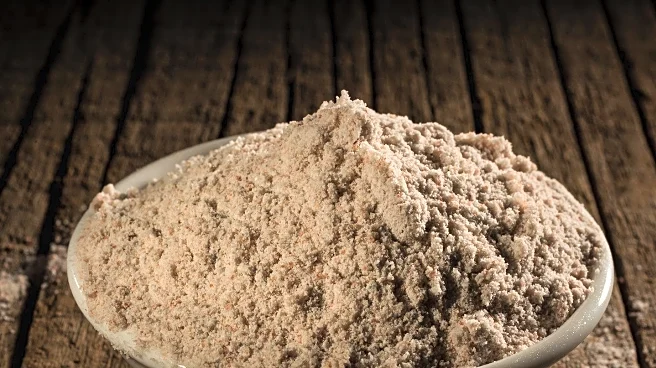What's Happening?
Consumer Reports has released a study revealing high levels of lead contamination in several popular protein powders. The investigation, which spanned three months, found that more than two-thirds of the products tested contained lead levels exceeding
safety recommendations. Brands such as Huel Black Edition, Naked Nutrition, and Garden of Life were among those identified with concerning levels of lead, cadmium, and arsenic. Some brands have withdrawn their products, while others have disputed the findings, citing California's Proposition 65 as the basis for the report's lead threshold.
Why It's Important?
The presence of heavy metals in protein powders raises significant health concerns, particularly for vulnerable populations like pregnant individuals and children. Continuous exposure to lead can lead to neurological effects and developmental issues. This report may prompt consumers to reconsider their protein supplement choices and opt for natural sources of protein. The findings also highlight the need for stricter regulations and oversight in the supplement industry to ensure consumer safety and prevent contamination from industrial agriculture practices.
What's Next?
Brands implicated in the report may face increased scrutiny and pressure to improve product safety standards. Consumer Reports' findings could lead to regulatory reviews and potential changes in industry practices to address contamination issues. Consumers are likely to demand greater transparency and accountability from supplement manufacturers, which may result in reformulated products and enhanced safety measures. The industry may also see a shift towards more natural protein sources as consumers seek safer alternatives.
Beyond the Headlines
The report underscores the broader issue of environmental contamination affecting food products. Industrial agriculture practices contribute to heavy metal presence in both plant and animal-based foods, necessitating a reevaluation of agricultural methods and their impact on public health. This situation may drive innovation in sustainable farming practices and increased advocacy for cleaner production processes.















